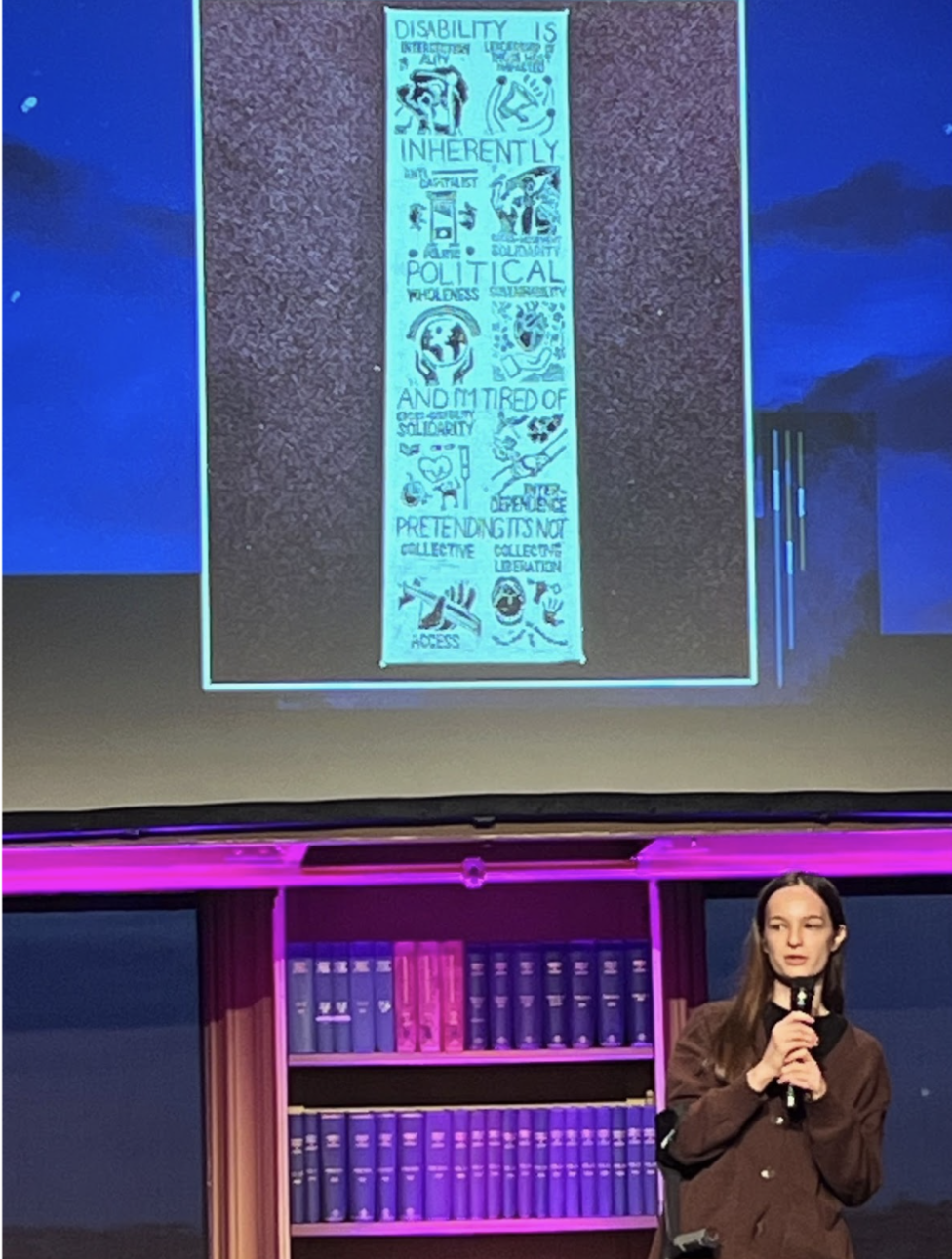An Evening of Expression with Georgetown’s Disability Cultural Center
Photo via Ayushi Das
On October 16th, 2024, Georgetown’s Disability Cultural Center (DCC) hosted its annual Arts Celebrating Disability Culture (ACDC) Event. The event occurred in Riggs Library, featuring arts showcases across mediums relating to disability, community, activism, and intrapersonal reflection.
16 student performers took to the stage, inviting the audience to revel in the vulnerability of their art pieces. They each showcased their artworks, with some students providing further insight into their artistic process. From poetry to photography and more, the performers explored the tactile physicality of art in relation to something bigger.
This is the third year the DCC has turned Riggs into a transformative space encouraging an open dialogue about disabled culture. Though I am able-bodied, I found myself relating to certain messages throughout the art exhibits.
Natalie Gustin’s (C ‘26) piece highlighted one such message. Her art piece was a block print using stamps she carved herself, containing various imagery symbolic of community and liberation such as hands holding, fists, and flowers with words that said, ‘disability is inherently political and I’m tired of pretending it’s not.’
Gustin presented her block piece. Photo by Ayushi Das
“These are principles of my life that I apply to all activism,” Gustin said in an explanation of her print.
Gustin continued by explaining how art helped her express her pain and rage at the ways in which society treats her disability. She also pointed out some of the imagery mentioned above in relation to other forms of systemic injustice.
“My disability is inherently tied to systemic racism, poverty, Palestinian liberation, the military-industrial complex, etc,” Gustin said. “I can’t exist as a disabled person separate from these issues.”
Gustin’s art highlighted a valuable focus of activism that is often overlooked: intersectionality.
While disability and something like poverty may not seem related, Gustin’s art piece reflects that all forms of oppression are inherently connected; therefore, they are all inherently political. For example, disabled people are more likely to be homeless, and the statistics for disabled people of color are even worse—marginalization compounds itself, demanding social activism that recognizes this.
As a viewer, I appreciated how Gustin inscribed this message visually in her block print. It’s a powerful method of communicating such a crucial topic.
Although not all the pieces were as political in nature as Gustin’s, they all shared the underlying themes of self-expression, community, and identity. GU Jawani performed the traditional South Asian dance style bhangra, beginning their performance with no music.
I interpreted this moment of the dance as something to encourage non-hard-of-hearing (HOH) audience members to experience a fraction of the world from HOH perspectives. Rather than lip-syncing to the songs, GU Jawani instead lit the stage with their colorful expressions and movements.
GU Jawani performing Bhangra at ACDC. Photo by Ayushi Das
They weren’t the only dancers to take the stage. Two members of Ballet Folklorico Mexicano de Georgetown performed traditional Mexican Folklorico dance with a twist.
Instead of performing the traditional footwork with skirt movements, Delfina Bell and Inés Molina divided the steps, with one dancer performing the footwork and the other performing the skirt choreography.
Their performance highlighted the interdependence between disabled bodies and the community that develops from showing up for one another. While the performance might not have been traditional, it highlighted the unique ways in which disabled artists make space for themselves to thrive.
Other showcases included photography by Bakary Kone (C’27) and live charcoal sketches by Edena Park (C’27). Students were not required to disclose if they were disabled to perform, encouraging focus on artistic expression.
As a whole, the event was a moment of reflection for disabled and non-disabled Georgetown community members to appreciate beautiful art pieces and the larger message they serve to represent. You can learn more about the DCC and their upcoming events here.



